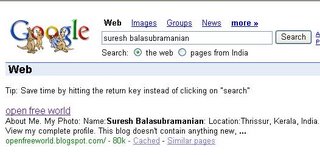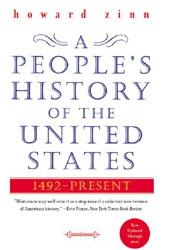
At last, Saddam Hussein was executed, by the very people, whom he tortured. "Justice" has been served. Now we can move on and find the next "Saddam". Look at Cuba, may be we have our next prey there - "Fidel" is tired, old. Let's kill him before he dies. Meanwhile we can prepare Iran, feed her before she can be slaughtered.
While pro-US media were celebrating Saddam's execution, I was "
digging", reading posts from people around the globe, some were supporters, some were not. I replicate some great diggs here which say what I want to say, why re-invent the wheel? :) ...
... my country IS controlled by an "evil dictator". And I would never ask the US to liberate me, I'm happy and my life is better than most Iraqis right now. And OMGWTF I can POST ON DIGG and browse the internets freely!!
The price of total freedom in Iraq was too high.. Societies evolve and adopt democracy when they're ready for it, "Liberating" and forcing democracy upon any country is *#&%. It would take a very long time to make Iraq stable again.
Saddam was evil no doubt, but the trial was a joke. Someone explain why he isnt in the Hague... Saddam had many of his lawyers killed, he is being tried by the very people he hurt... and charged with "crimes against humanity" and yet wasn't tried by the world court?... WE should at least act like we are being fair. I have no doubt the hague would find him guilty, that isnt the point and no i dont give a crap about Saddam, that also isnt the point. It is americans image of freedom and fairness that is the point. That is why a fomer US attorney Gerneral was the lawyer on saddams side, not that he supported saddam but he actually believed in the rule of law and that even the worst people on the planet deserve a fair trial...
Also the U.S is the only non third world nation with the death penalty... it is barbaric to become evil to fight evil. It justifies killing and i think that is the main reason he is not in the Hague also like you hear so often from both sides in this election, the timing is rather suspicious we will hear nothing but how this is a turning point right up till we vote...
Bush didn't stop two terrorist regimes: He created a terrorist fun-house (Iraq), and started withdrawal from Afghanistan long before the Taliban was gone. Sure, we killed a bunch of heads of state, but the Taliban is still very much in control of the country. The job in Afghanistan simply wasn't done before Bush started on Iraq.
Besides, this War of Terror has killed more Iraqi civilians than Saddam ever did (using our weapons, mind you).
I don't really support the killing of another person, even if he has caused many deaths. I would personally sentence him to life, and not give him any sorts of luxuries like he got when we were holding him.
Saddam:
Halabja: 5,000
1991 uprisings: 10,000 = 15,000 (Approx)
Bush:
Iraq: 45,000-50,000
So when does Bush go on trial?
Don't think I'm not a supporter of our troops or anything. Hell, my brother-in-law came back three days ago! But, if Saddam is being executed for ordering killings...
I'll know I'll probably get dugg down for this, but I really don't care.
After all the "digging", I landed into
HarryBrowne.org, where I read an excellent article titled "
Can you imagine? Hussien was right & Bush was wrong". Excerpts from the article.
You may remember that in 2002, the year before the Iraq War began, the United Nations Security Council ordered Iraq to produce a report detailing all of its biological, chemical, and nuclear weapons — past and present. Iraqi officials complied and produced an 11,800-page report on Iraq's weapons programs. The report described all the chemical and biological weapons the country once had — where they came from and what was done with them — as well as what had happened to Iraq's nuclear weapons program.
Although the report was prepared for the United Nations, U.S. officials intercepted the report, edited out 8,000 pages (over two thirds) of it, and delivered its Reader's Digest version of the report to the UN.
A German reporter managed to obtain a copy of the original report from Iraq, and then compared it with the truncated copy the U.S. gave to the UN. He found that the missing parts covered the Iraqis' acquisition of chemical and biological weapons from the U.S., the delivery of non-fissionable materials for a nuclear bomb by the U.S. to the Iraqis, and the training of Iraqi nuclear scientists at U.S. nuclear facilities in Los Alamos, Sandia, and Berkeley.
US invaded Iraq saying that it helped Osama Bin Laden and was involved in 9/11. It said Iraq had weapons of mass destruction. We believed.
Today, Iraq invasion is complete, thousands of civilians killed, Saddam is executed. We believe that "Justice has prevailed".
 എ അയ്യപ്പന് (27 ഒക്ടോബര് 1949 - 21 ഒക്ടോബര് 2010)
എ അയ്യപ്പന് (27 ഒക്ടോബര് 1949 - 21 ഒക്ടോബര് 2010) 















